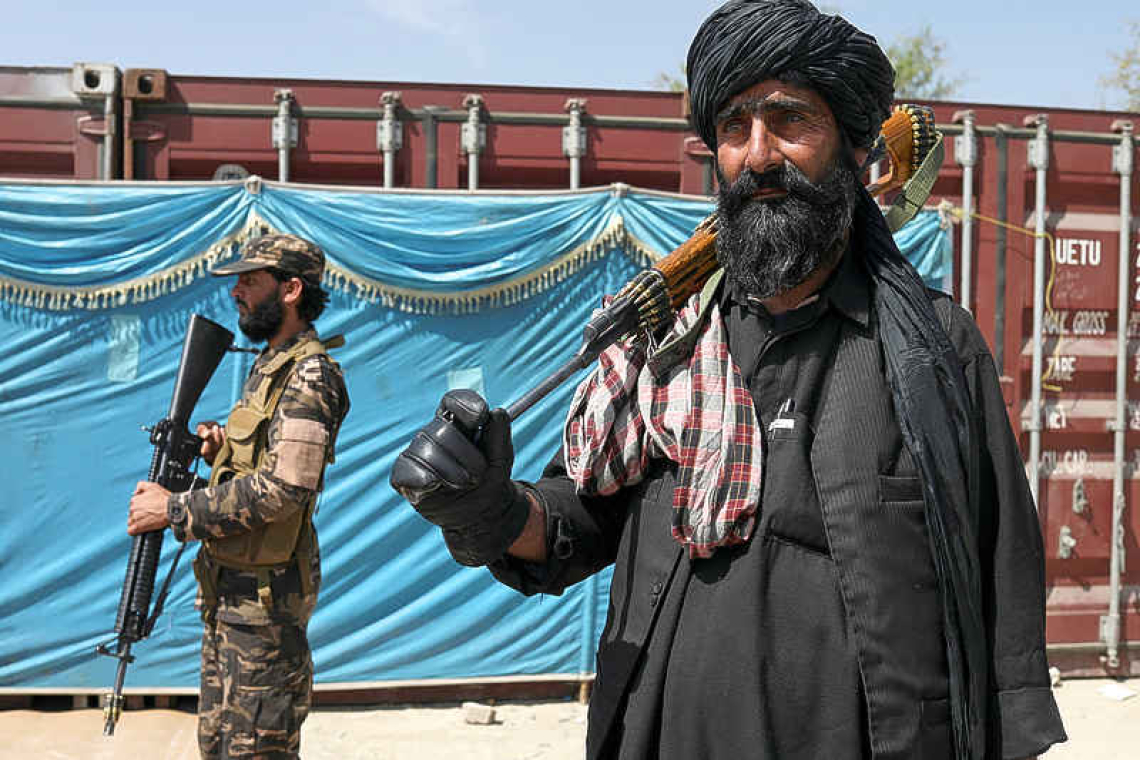KABUL--The Taliban are creating a large-scale camera surveillance network for Afghan cities that could involve repurposing a plan crafted by the Americans before their 2021 pullout, an interior ministry spokesman told Reuters, as authorities seek to supplement thousands of cameras already across the capital, Kabul.
The Taliban administration — which has publicly said it is focused on restoring security and clamping down on Islamic State, which has claimed many major attacks in Afghan cities — has also consulted with Chinese telecoms equipment maker Huawei about potential cooperation, the spokesman said. Preventing attacks by international militant groups - including prominent organisations such as Islamic State - is at the heart of the interaction between the Taliban and many foreign nations, including the U.S. and China, according to readouts from those meetings. But some analysts question the cash-strapped regime's ability to fund the programme, and rights groups have expressed concern that any resources will be used to crackdown on protesters. Details of how the Taliban intend to expand and manage mass surveillance, including obtaining the U.S. plan, have not been previously reported. The mass camera rollout, which will involve a focus on "important points" in Kabul and elsewhere, is part of a new security strategy that will take four years to be fully implemented, Ministry of Interior spokesman Abdul Mateen Qani told Reuters. "At the present we are working on a Kabul security map, which is (being completed) by security experts and (is taking) lots of time," he said. "We already have two maps, one which was made by U.S.A for the previous government and second by Turkey." He did not detail when the Turkish plan was made.
A U.S State Department spokesperson said Washington was not "partnering" with the Taliban and has "made clear to the Taliban that it is their responsibility to ensure that they give no safe haven to terrorists." A Turkish government spokesperson didn't return a request for comment. Qani said the Taliban had a "simple chat" about the potential network with Huawei in August, but no contracts or firm plans had been reached. Bloomberg News reported in August that Huawei had reached "verbal agreement" with the Taliban about a contract to install a surveillance system, citing a person familiar with the discussions. Huawei told Reuters in September that "no plan was discussed" during the meeting. A Chinese Foreign Ministry spokeswoman said she was not aware of specific discussions but added: "China has always supported the peace and reconstruction process in Afghanistan and supported Chinese enterprises to carry out relevant practical cooperation."
There are over 62,000 cameras in Kabul and other cities that are monitored from a central control room, according to the Taliban. The last major update to Kabul's camera system occurred in 2008, according to the former government, which relied heavily on Western-led international forces for security. When NATO-led international forces were gradually withdrawing in January 2021, then-vice president Amrullah Saleh said his government would roll out a huge upgrade of Kabul's camera surveillance system. He told reporters the $100 million plan was backed by the NATO coalition. "The arrangement we had planned in early 2021 was different," Saleh told Reuters in September, adding that the "infrastructure" for the 2021 plan had been destroyed. It was not clear if the plan Saleh referenced was similar to the ones that the Taliban say they have obtained, nor if the administration would modify them. Jonathan Schroden, an expert on Afghanistan with the Center for Naval Analyses, said a surveillance system would be "useful for the Taliban as it seeks to prevent groups like the Islamic State ... from attacking Taliban members or government positions in Kabul." The Taliban already closely monitor urban centres with security force vehicles and regular checkpoints.







